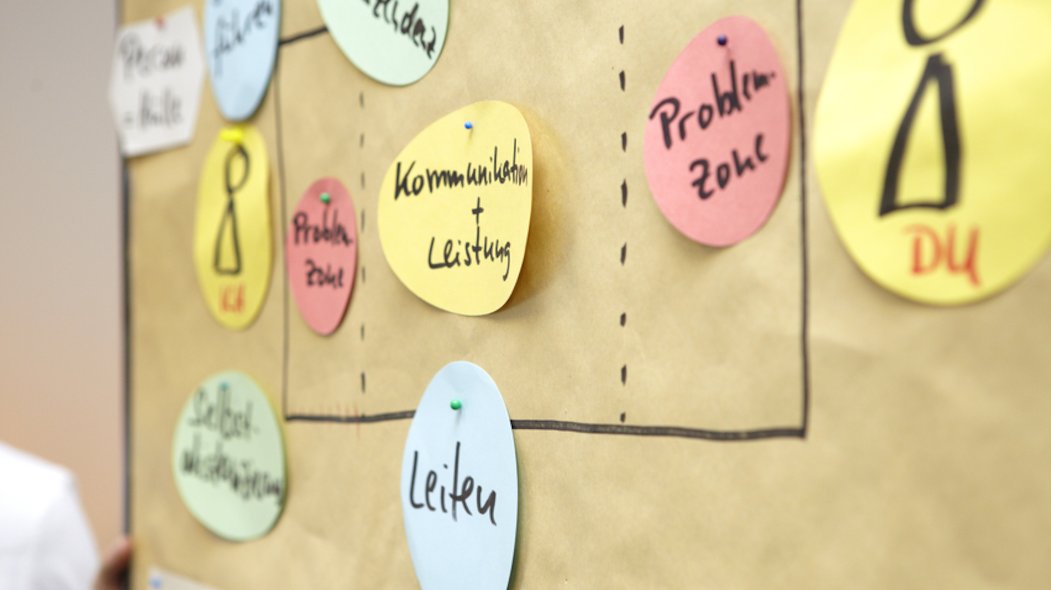Psychology
Psychology is the science of human experience, behaviour and action.

Overview of the academic discipline
Psychology is an empirical science, i.e. all statements are based on observations and experiments. The results are processed using mathematical and statistical methods.
Psychology has interdisciplinary characteristics and overlaps with scientific fields such as the life sciences, sociology, education, philosophy, linguistics, economics (especially marketing and experimental economic research) and computer science.
This field of study is divided into a number of sub-disciplines:
- General psychology deals with the basic functional forms of human experience and behaviour (learning, memory, language, emotion, motivation, etc.).
- Differential psychology/personality psychology focuses on individual and group-specific differences in the functional areas addressed in general psychology.
- Environmental psychology deals with the interaction of environmental factors and the human psyche.
- Legal psychology deals with the application of psychological theories, methods and findings to various problems in the legal system, for example in the context of court proceedings.
- Developmental psychology deals with changes in behaviour and experience depending on age or life stage. Its findings are particularly important for educational and clinical psychology.
- The subject of social psychology is the influence of the (real or anticipated) experience and behaviour of other people on human experience and behaviour.
- Biological psychology and neuropsychology analyse the interdependence of psychological and physical processes (e.g. in the nervous system).
- At the interface between psychology and business administration, business psychology deals with questions such as: Why do customers buy a certain product? How can teamwork be improved (e.g. supervision)? How can entrepreneurial transformation processes (e.g. digitalisation) gain more acceptance?
Some of these disciplines work in an interdisciplinary environment and cooperate with neuroscience, medicine, social sciences and economics.
Which topics are included in the curriculum?
In the Bachelor's degree programme, modules provide an introduction to psychology and epistemology as well as basic scientific techniques and research methods (e.g. experimental design, empiricism, statistics, computer-aided data analysis, quantitative methods). In addition, there are modules on general and differential psychology, social, developmental and biopsychology, psychological diagnostics and test theory as well as relevant areas of application (educational psychology, health psychology, basics of clinical psychology, occupational and organisational psychology).
In the Master's degree programme, modules allow students to expand or specialise in basic and applied knowledge and to form specialisations, e.g. cognitive psychology or clinical psychology and psychotherapy.
What are the requirements?
Basic knowledge of the following school subjects is helpful for studying psychology: biology, chemistry, maths and English.
Due to the high demand for study places, not all those interested can usually be admitted to the Bachelor's degree programme in Psychology. The numerus clausus varies from university to university and in the past was usually between 1.0 and 2.0 (for information on the numerus clausus, see chapter 4.2).
What study programmes are there to choose from?
Psychology is offered as a Bachelor's and Master's degree course under the name (Applied) Psychology, but can also be studied as a so-called hyphenated subject with a specialisation, e.g. Business Psychology or Work and Organisational Psychology. A distinction is made between Master's programmes with and without a (predefined) specialisation.
Important: If you want to become a psychotherapist, you must study a Master's degree programme in psychology with a focus on clinical psychology and psychotherapy that conforms to the licensing requirements.
Note: Since the winter semester 2023/24, the German Psychological Society has been offering a study aptitude test for the Bachelor's degree programme in Psychology. You can find more information at: www.dgps.de/psychologie-studieren/infos-zum-studium/studieneignungstest-psychologie/
What job opportunities are there after graduation?
Employment opportunities for psychologists vary greatly and depend primarily on the respective specialisation. Possible fields of activity are
- Clinical-psychological practices, psychotherapeutic practices
- Psychological counselling centres run by local authorities, churches or independent organisations
- Psychosomatic clinics and psychiatric hospitals, rehabilitation and spa facilities
- Homes for the disabled and elderly, homes and institutions for social and special education
- Occupational psychology service at the Federal Employment Agency
- Psychological services of authorities, regional authorities, judicial authorities, police administrations and youth welfare offices, school psychology services at state and local authorities and the German armed forces
- Teaching and research institutions, adult education centres, schools and pre-school educational institutions
- In large companies, e.g. in corporate psychological services, in human resources and coaching, in in-house training and further education as well as in the moderation of international teams
- Market and opinion research institutes, PR and advertising agencies, publishing houses.
The largest area of employment for psychologists continues to be in the clinical sector and in commercial enterprises.
In addition, new fields of activity are gaining importance, e.g. in environmental and traffic psychology, the moderation of international teams in globally operating companies, emergency psychology, work with senior citizens or sports and leisure psychology.
The Psychotherapists Act binds the use of the professional titles ‘Psychological Psychotherapist’ and ‘Child and Adolescent Psychotherapist’ to a corresponding licence to practise. The prerequisite for the granting of this licence to practise is passing a state psychotherapeutic examination (recognised by the Scientific Advisory Board for Psychotherapy of the German Medical Association) on the basis of a completed psychology degree, which must consist of a polyvalent three-year Bachelor's degree and a two-year Master's degree.
